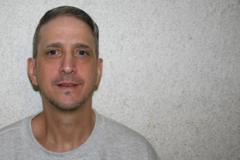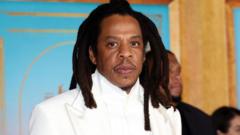HOUSTON (AP) — In a landmark decision, the Texas Court of Criminal Appeals has once again halted the execution of Robert Roberson, narrowly averting what would have been the first death sentence imposed in the United States based on a conviction associated with shaken baby syndrome. This pivotal ruling, announced just days before Roberson was scheduled to die by lethal injection on October 16, is grounded in the court's acknowledgment of the evolving scientific discourse surrounding the syndrome that plays a crucial role in such convictions.
Roberson's execution has been postponed multiple times, with this being the third stay secured by his attorneys since 2016. The legal team argues that Roberson's conviction was fundamentally flawed due to new medical insights that question the reliability of the initial forensic evidence used against him — a view that has gained traction after a similar case saw a successful appeal.
Legal representatives for Roberson contend that his then-undiagnosed autism contributed to the perception of his demeanor during investigative interviews, which was misconstrued as a sign of guilt. This aspect remains integral to Roberson's case, as his emotional expressions were incorrectly interpreted, leading to a wrongful conviction narrative. In 2018, he was diagnosed with autism, further solidifying arguments for a reevaluation of his case in light of his cognitive and emotional capabilities.
The decision to grant the stay is linked to Texas’ controversial junk science law instituted in 2013, enabling individuals to contest their convictions based on outdated or inaccurate scientific evidence. Roberson’s legal counsel has pointed out that his situation mirrors that of Andrew Roark, whose shaken baby conviction was overturned due to similar scientific advancements, prompting a broader review of past cases.
Notably, the ruling has sparked varying responses from both supporters of Roberson, including lawmakers from across the political spectrum, and critics, particularly from the victim's family. Matthew Bowman, Nikki Curtis's half-brother, expressed disappointment regarding the court's decision, firmly believing in Roberson's guilt.
Despite the challenges he faces, Roberson maintains his innocence, adamantly asserting he never inflicted harm on his daughter, who died from brain injuries that prosecutors attributed to violent actions.
This ongoing case illuminates broader issues concerning judicial processes, the reliability of forensic science, and the ethical considerations of capital punishment. As Roberson's legal battle continues, it reinforces the imperative for a thorough examination of justice mechanisms employed across the United States.
Roberson's execution has been postponed multiple times, with this being the third stay secured by his attorneys since 2016. The legal team argues that Roberson's conviction was fundamentally flawed due to new medical insights that question the reliability of the initial forensic evidence used against him — a view that has gained traction after a similar case saw a successful appeal.
Legal representatives for Roberson contend that his then-undiagnosed autism contributed to the perception of his demeanor during investigative interviews, which was misconstrued as a sign of guilt. This aspect remains integral to Roberson's case, as his emotional expressions were incorrectly interpreted, leading to a wrongful conviction narrative. In 2018, he was diagnosed with autism, further solidifying arguments for a reevaluation of his case in light of his cognitive and emotional capabilities.
The decision to grant the stay is linked to Texas’ controversial junk science law instituted in 2013, enabling individuals to contest their convictions based on outdated or inaccurate scientific evidence. Roberson’s legal counsel has pointed out that his situation mirrors that of Andrew Roark, whose shaken baby conviction was overturned due to similar scientific advancements, prompting a broader review of past cases.
Notably, the ruling has sparked varying responses from both supporters of Roberson, including lawmakers from across the political spectrum, and critics, particularly from the victim's family. Matthew Bowman, Nikki Curtis's half-brother, expressed disappointment regarding the court's decision, firmly believing in Roberson's guilt.
Despite the challenges he faces, Roberson maintains his innocence, adamantly asserting he never inflicted harm on his daughter, who died from brain injuries that prosecutors attributed to violent actions.
This ongoing case illuminates broader issues concerning judicial processes, the reliability of forensic science, and the ethical considerations of capital punishment. As Roberson's legal battle continues, it reinforces the imperative for a thorough examination of justice mechanisms employed across the United States.

















